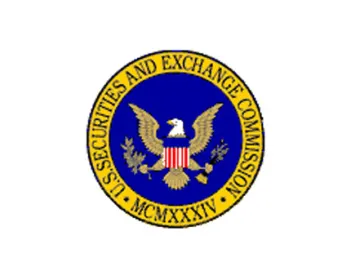On October 26, the Securities and Exchange Commission (SEC) issued three long-awaited letters clarifying how regulatory requirements in the European Union (EU), which go into effect on January 3, 2018, will impact US money managers.
Background on the EU Requirements
The Markets in Financial Instruments Directive (MiFID), which has been in effect since 2007, is the framework of EU legislation for the regulation of a wide variety of investment firms (including, among others, intermediaries that provide services to clients with respect to financial instruments) and the organized trading of financial instruments (including the regulation of EU trading venues). EU updates to this regulatory structure (in the form of a revised and restated Directive, an EU regulation and underlying subordinate legislation (jointly referred to as MiFID II)), will, among other things, prohibit certain money managers from receiving "inducements" from a third party in connection with providing any investment or ancillary service to a client. Under MiFID II, an "inducement" can include a money manager's receipt of in-scope research from an executing broker, among others.
For the purposes of MiFID II, the type of research that is in scope is research material or services: (1) concerning one or several financial instruments or other assets; or (2) concerning the issuers or potential issuers of financial instruments; or (3) closely related to a specific industry or market such that it informs views on financial instruments, assets or issuers within that sector, and which in each case, explicitly or implicitly recommends or suggests an investment strategy and provides a substantiated opinion as to the present or future value or price of such instruments or assets, or otherwise contains analysis and original insights and reaches conclusions based on new or existing information that could be used to inform an investment strategy or be capable of adding value to a firm's decisions on behalf of clients ("Investment Research").
Under MiFID II, Investment Research provided by third parties to advisers will not be regarded as an inducement prohibited under MiFID II if the Investment Research is received in return for: (1) direct payments by the adviser out of its own resources; (2) payments from a separate research payment account (RPA) controlled by the adviser and funded by means of a research budget that is set, regularly assessed, and agreed upon with each client; or (3) a combination of both arrangements.
Under MiFID II, research payments may continue to be collected alongside brokerage commissions to fund an RPA, provided that the amounts charged to clients in connection with the trade include both a distinct execution component and a distinct research component; and the distinct research component (i.e., a research charge) is determined based upon the client's individually agreed upon research budget.
In an RPA subject to MiFID II, an adviser will direct a trade to a broker-dealer and transmit the research payment alongside the execution payment. The broker-dealer will then retain the execution payment and remit the research payment, collected alongside the execution payment, to the RPA. The adviser is then able to distribute the funds in the RPA to pay for investment research products and services.
An investment manager that uses an RPA to purchase Investment Research must meet certain requirements, including that the investment manager: (1) funds the RPA with a research charge to the client that has been agreed on a client-by-client basis; (2) sets and regularly assesses a research budget, with any surplus refunded to the relevant client or used to offset future research costs; (3) regularly assesses the quality of the research received; (4) provides clients and EU regulators, upon request, certain information about the use of the RPA to purchase Investment Research; and (5) establishes a written policy addressing how Investment Research purchased through the RPA will be used to benefit clients' portfolios and how the costs will be allocated among clients.
When Do the EU MiFID II Rules Apply to US Advisers or Managers
The UK Financial Conduct Authority (FCA) has confirmed that a US sub-adviser to a FCA-regulated MiFID manager also must be required (as delegate of the FCA-regulated manager) to comply (contractually) with the research and inducements rules under MiFID II on a substantially similar basis. The FCA commented this summer that non-EU managers acting as delegate to UK managers should operate within a framework that achieves the same investor protection outcomes for their underlying clients—with the FCA highlighting three areas where consistency may be achieved by having the UK manager contractually require the non-EU manager (in a revised investment management or sub-advisory agreement) to:
-
set a budget with a maximum research spend, and implement procedures as to how that budget will be used;
-
fully account for the Investment Research received in relation to the delegated funds; make an assessment of the value of this Investment Research, and control the payments made to such providers on the basis of this valuation; and
-
maintain systems and controls to ensure that research does not compromise best execution or otherwise give rise to conflicts of interest.
As with EU managers, the FCA also noted that if a delegate of a UK manager were to pay for the research itself this would also satisfy MiFID II research costs unbundling rules.
Currently, it is unknown whether or not other EU regulators are taking the same approach to sub-advisors. It is recommended that advisers and managers seek guidance where they are a delegate of a sub-adviser to any EU MiFID management firm.
Issues Raised by MiFID II That the SEC Addressed
When a Broker Separately Charges for Research, Is It Entering Into an Advisory Relationship with a Client?
Historically, full service brokers did not "unbundle" the costs of research (whether Investment Research or otherwise) from execution services. This model conformed to the so-called brokers' exemption from the definition of an investment adviser in Section 202(a)(11)(C) under the Investment Advisers Act of 1940, as amended ("Advisers Act"). Arguably, the brokers' exemption would no longer be available if a broker separately charged for the provision of research services, as will soon be required by MiFID II. This would mean that brokers separately charging for research would have to be registered as advisers and, more important, would be subject to Section 206(3) of the Advisers Act in their trading for clients. In dealer markets, such as NASDAQ and the bond markets, brokers trade out of their own inventories and therefore trade on a principal basis with clients. If such trading were subject to Section 206(3) of the Advisers Act, because of the loss of the brokers' exemption due to the separate pricing and selling of research, such trading might become impractical because disclosure to clients and client consent would be required on a trade-by-trade basis.
To address this concern, the SEC's Division of Investment Management has provided temporary relief for 30 months from MiFID II's implementation date under the Advisers Act to permit a broker-dealer to receive payments in hard dollars or through MiFID-governed RPAs from MiFID-affected clients without being considered an investment adviser.1
Aggregation of Trades When Clients Might Pay Different Amounts in Such Trades
For decades, the SEC has permitted client trades to be aggregated and executed together provided, among other conditions, that transaction costs be shared by clients pro rata based on each client's participation in the transaction.
Advisers that are subject to MiFID II will be required to enter into new arrangements with clients regarding payment for Investment Research, with each client having a separate budget for research (or no budget at all) depending on individual arrangements. The amount of the payment attributable to research may vary by client depending upon the client's applicable arrangement in relation to the payment for such Investment Research. The amount of the research charge collected in respect of a particular transaction through an RPA depends on the applicable research budget. In addition (or alternatively), an adviser may elect to pay for Investment Research from its own resources for other clients where an RPA is not feasible. Therefore, even though execution rates remain constant, total costs associated with a particular transaction may vary depending upon the client's applicable arrangement. As a result of the various potential research arrangements and combinations thereof, all clients may not pay a pro rata share of all costs (i.e., research payments) associated with an aggregated order as contemplated in SEC no-action letters although all clients will continue to pay the same average security price and execution rates. This then raises the question whether MiFID II would prohibit the aggregation of orders for client accounts.
To address this concern, the Division of Investment Management provided relief under the Investment Company Act of 1940, as amended ("Investment Company Act"), and the Advisers Act to permit investment advisers to continue to aggregate client orders for purchases and sales of securities, where some clients may pay different amounts for research because of MiFID II requirements, but all clients will continue to receive the same average price for the security and execution costs.
Availability of the Section 28(e) Safe Harbor for Soft Dollar Arrangements
Section 28(e) of the Securities Exchange Act of 1934, as amended ("Exchange Act"), creates a safe harbor from provisions of federal and state law that might otherwise be interpreted as prohibiting an investment adviser from using client commissions to pay for research and brokerage services. The Section 28(e) safe harbor is viewed as essential protection in certain cases, such as for client accounts that are regulated under ERISA or the Investment Company Act, and as valuable protection for investment advisers for all types of client relationships. To qualify for the safe harbor, the soft dollar arrangement must meet certain requirements, including that the research and brokerage services are provided by a broker who effects transactions to generate the soft dollar credits. In a 2006 interpretation of Section 28(e), the SEC modified prior interpretations of Section 28(e) to permit client commission arrangements (CCA)2 to qualify under Section 28(e).
However, an RPA differs somewhat from a CCA under the framework established by the SEC under Section 28(e) of the Exchange Act. First, in the RPA model, the amount paid for research is identified separately from the amount paid for execution before the money manager makes the payments to the executing broker-dealer. In a CCA, the brokerage (including execution) and research portions of the commission are separated at a later point in time (i.e., when the executing broker-dealer retains its payment for brokerage, including execution, and credits or transmits the research payment to the CCA). Second, the RPA is required to be under the control of the money manager and the money manager is held responsible for the RPA. When an RPA is operated in connection with a CCA, the research payments will continue to be paid to the executing broker-dealer, and the payments into the CCA will then be routed into an RPA. The money manager may in some circumstances engage the executing broker-dealer or third-party administrator to administer the RPA. In all cases, however, the executing broker-dealer will be contractually required to collect the research payments alongside payments for execution services made by the money manager out of client assets and pay such amounts into the RPA. By contract, once these research payments are deposited into an RPA, they may be used solely to pay for research, or be refunded to clients.
Because of these differences between CCAs and RPAs, there was a question of whether RPA arrangements would be able to rely on the Section 28(e) safe harbor. To address these concerns, the Division of Trading and Markets stated that, under MiFID II, Section 28(e) will be available for RPAs if investment advisers make payments to an executing broker-dealer out of client assets for research alongside payments for order execution, and the executing broker-dealer transmits the payments for RPAs.
Conclusion
The practical effect of the SEC letters is that US broker-dealers may charge for and receive payment for Investment Research from EU managers and in-scope US money managers without violating the Advisers Act, and in-scope US money managers may charge different clients different amounts for such Investment Research. The SEC interpretations also may impact the unbundling of the cost of research in the United States since the regulatory obstacles to such unbundling have now been removed.
It is likely that after 30 months, the SEC will decide what to do on a permanent basis. It will probably just extend the interpretation of the brokers exemption, but it is unclear at the current time.
1 There is a question whether the SEC has authority to interpret the brokers' exemption in this way. Fin. Planning Ass'n v. Securities & Exch. Comm'n, 482 F.3d 481 (D.C. Cir. 2007)
2 A client commission agreement (CCA), which is widely referred to in the EU and elsewhere as a commission sharing agreement (CSA), is a type of soft dollar arrangement that allows investment advisers to separately pay the executing broker for trade execution and ask that broker to allocate a portion of the commission directly to an independent research provider. CCAs consist of a percentage of execution fees that are directed to pay for research services provided to the investment adviser and paid for with client commissions.









 />i
/>i
